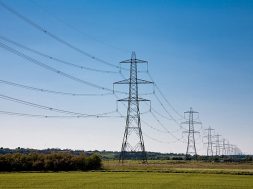
NEW DELHI : Amid the government’s ambitious energy transition goals, as much as 5 GW of electricity from renewable energy projects remains unsold, two people aware of the development said. The reason: A government-run nodal agency has been unable to find distribution companies willing to buy the power from these projects.
State-run Solar Energy Corp. of India (SECI), the nodal agency for renewable energy, signs PPAs with winning power developers in auctions, and subsequently signs power sale agreements (PSAs) with discoms for the sale of this power. However, discoms are increasingly reluctant to sign PSAs, as they notice tariffs keep declining in subsequent auctions.
However, this is still an improvement from the earlier part of the year when the quantum of such projects was 16 GW.
“Eight months earlier, there was a stock of almost 16 GW of unsold power, where letter of award was done but the PPA was not done. That has dwindled to 4 or 5 GW, which has been good progress,” said one of the two officials cited above, both of whom spoke on the condition of anonymity.
However, the situation may be easing as PPAs are being signed.“The backlog of unsold power came on the backdrop of anticipation of a further decline in tariffs since it touched a low of ₹1.99 per kWh (kilowattt hour) in November-December 2020. However, on the backdrop of the rise in module prices, tariffs have now gone up and have largely remained around ₹2.2- ₹2.3 per kWh. In recent auctions, tariffs have been in the range of ₹2.5-2.9 per kWh,” said Vikram V., vice president & sector head of corporate ratings at ICRA Ltd.
“A slow pace of signing of PPAs and PSAs would impact the capacity installation in the country. However, the situation has improved in the past few months,” he added.
In March this year, the standing committee on energy pulled up the Union ministry for new and renewable energy for not achieving assigned yearly targets for installation of renewable power.
Module prices, which were around 17-20 cents in December 2020, are now around 35 cents in the case of imported modules, including the 40% basic customs duty and the cost of domestic cells are 36-37 cents on an import parity basis, analysts said. The basic customs duty of 40% on modules and 25% on cells effective from April 2021 has lifted the prices of modules in the country.
The plunge in green power tariffs came largely on the back of highly competitive bidding under the reverse auction process. In a reverse auction, once the lowest bid is found after the bids are opened, there is a further auction for even lower bids. In renewable energy, the mechanism of reverse auctions has been used largely to discover the lowest tariff.
Green energy players have urged the government to revert to closed bids on the grounds that reverse auctions hurt businesses due to low tariffs discovered through the process.
Queries sent to the ministry of new and renewable energy, ministry of power and SECI remained unanswered till press time.













